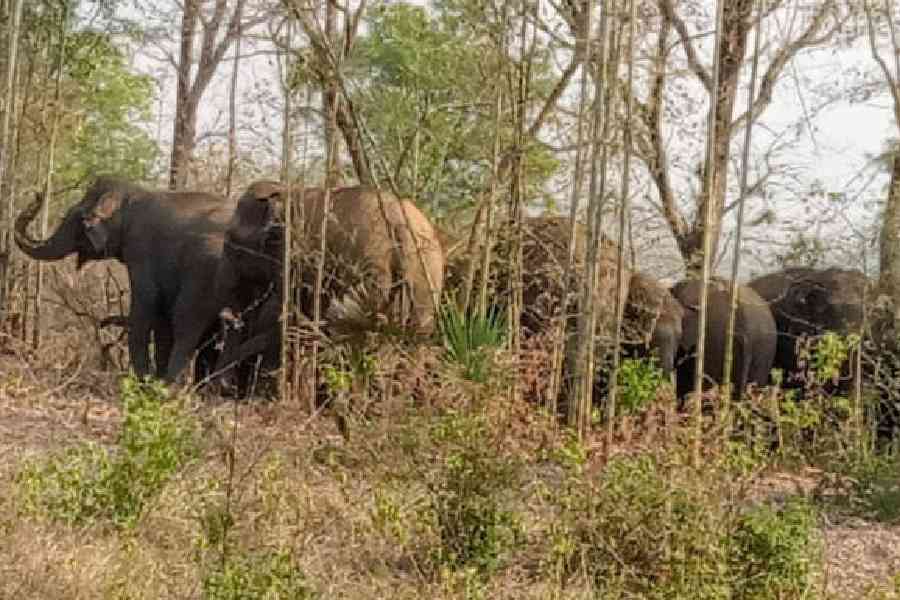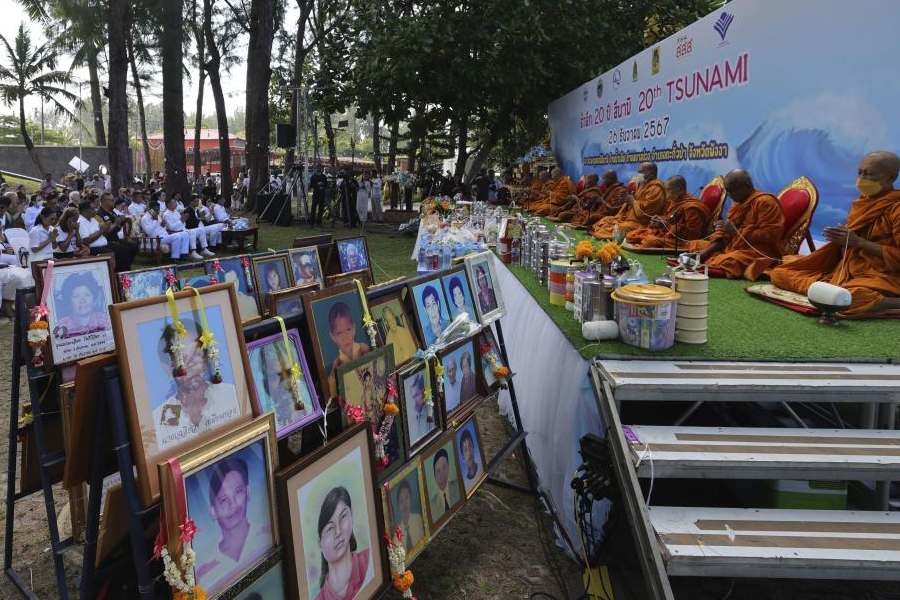Anil Oraon, a 45-year-old resident of Lachhman Dabri village in Falakata block of Alipurduar district, owns a 15-bigha plot where he'd farm till last year.
This year, Anil and his brothers Binod and Suraj, moved to Bhutan as migrant workers. His land and those of his brothers are lying unused.
Why did he shift? Anil blames wild elephants.
“It is no exaggeration to say that wild elephants have driven us out of our villages and turned us into migrant workers from farmers. Over the years, the frequency of elephant depredation has increased on such a scale that we can no longer farm. My brothers and I were forced to work as daily wage earners elsewhere,” said Anil.
He said that in villages close to reserve forests and elephant habitats, elephants wander about regularly, devouring crops and vegetables.
Mahbul Alam, who is from Islamabad village in Madarihat block and works in Bhutan with brother Md Jalal, said their father Md Sahiruddin, owns around 20 bighas of land. "Even a few years back, we could run our homes by growing crops and vegetables on the land. Elephant attacks were fewer back then. These days, stretches of farmland lie uncultivated in our village and several nearby ones as most farmers don’t see any profit in agriculture because of elephant depredation,” Alam said over the phone from Bhutan.
Alipurduar is a district known for its lush green tea estates and pristine forests, including reserve forests like the Jaldapara National Park and Buxa Tiger Reserve.
“However, the presence of wild elephants throughout the district, especially in Madarihat, Falakata and Alipurduar-I blocks, poses a livelihood crisis for people in at least 20 villages of these blocks. Over the past few years, 1,000 to 1,200 farmers have left villages to serve as migrant workers,” said Rashidul Alam, a Trinamul member of Falakata panchayat samiti.
Rashidul, who has suffered crop losses because of elephant attacks, said farmers take loans from private lenders for cultivation, but often lose their standing crops when elephants, in search of fodder, damage their fields.
“The compensation from the state forest department is no match. Farmers have to face losses, repay loans and run the family. It's an impossible situation and forces farmers to leave their villages to earn money,” he said.
Some villagers have moved to Bhutan. Others have headed for different Indian states where they work in construction sites.
In recent years, farmers from villages like Khayerbari, Dhumchi, Lankapara, Dalmore, Reti, Bundapani and Dalgaon of Madarihat block have migrated to other states. It's the same scenario in Shibnathpur, Karjipara, Khauchandpara, Abarupara and Paschim Salkumar villages in Falakata block, and Sidhabari, Natunpara, Haldibari, Mandalpara, Suripara villages in Alipurduar-I block.
Dipnarayan Sinha, the bon-o-bhumi karmadhyaksha (member in charge of forest and land) of Alipurduar zilla parishad, said that unlike most people in Bengal who migrate in search of work, these people from the villages of Alipurduar are not landless.
“Each of them owns at least a five-bigha plot. These people could have lived on farming, but given the circumstances, they have no alternative but to move out. We have brought this problem to the notice of senior officials of the state forest department so that some solution can be found,” said Sinha.
Foresters and officials of the district administration, when contacted for details of how the government can help prevent this unique form of forced migration among farmers and yet ensure that elephants thrive, denied comment, pointing out that the model code of conduct was in force because of the ongoing Lok Sabha polls.
“We are aware of the forced migration in these villages. Once polls are over, the matter will be looked into,” said an official who didn’t want to be named.











